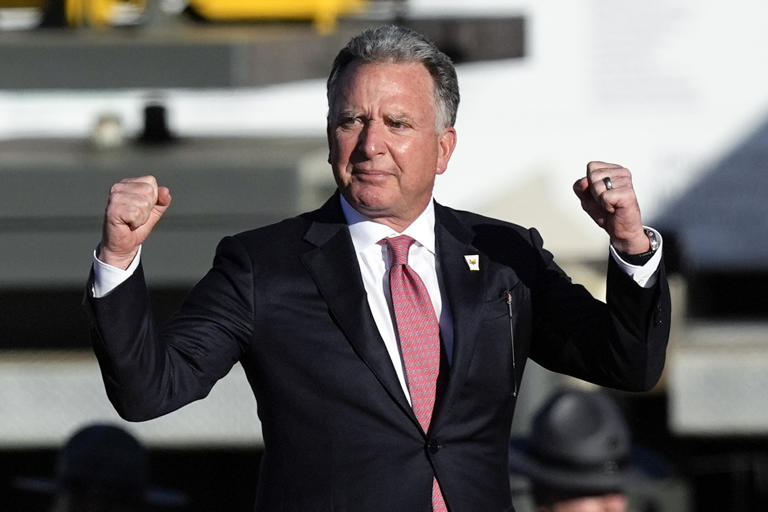U.S. Negotiators Pull Off Shocking Ceasefire Deal Between Israel and Hamas!
Israeli officials were caught off guard when they learned Steve Witkoff, Donald Trump’s Middle East envoy, was heading to Jerusalem on Saturday, Jan. 11 Shabbat. With little known about Witkoff’s diplomatic experience, Israeli leaders initially dismissed him as “just some guy sent by Trump.”
However, by the end of Witkoff’s meeting with Prime Minister Benjamin Netanyahu, the Israeli leader had no choice but to quickly agree to the evolving terms of a ceasefire with Hamas. Trump’s bold intervention, coupled with Witkoff’s presence, proved pivotal in clinching a deal that 14 months of negotiations had failed to finalize.
While President Biden dismissed Trump’s claims of full credit for the ceasefire as “a joke,” Biden officials admitted Trump’s late-stage involvement was instrumental. “The Trump team’s participation has been absolutely critical,” said State Department spokesman Matthew Miller, noting the importance of continuity between administrations.
This rare collaboration between the outgoing Biden administration and the incoming Trump team began shortly after the presidential election. Biden outlined the challenges of mediating between Israel and Hamas, emphasizing the need for a united U.S. stance to reassure all parties. Trump’s envoy and Biden’s team ultimately bridged their political differences to seal the deal, with National Security Council official Brett McGurk praising Witkoff’s decisive role.
The ceasefire, now set to take effect Sunday, marks an extraordinary achievement in U.S. diplomacy, made possible by an unlikely bipartisan partnership.
As negotiations dragged on, Palestinians in Gaza continued to suffer as Israel’s military campaign against Hamas caused significant casualties and exacerbated severe shortages of food, water, fuel, and medical care due to the blockade on humanitarian aid.
The only prior hostage release among the more than 250 individuals taken during Hamas’s October 2023 attack on Israel occurred in late November. Of the 94 captives Israel claims are still in Gaza, the fate of many remains unclear.
Throughout November and December, Trump’s appointees Steve Witkoff and Michael Waltz collaborated with Biden’s team, including Jake Sullivan and Brett McGurk, to assess shifts in Middle Eastern power dynamics. Relentless Israeli strikes had devastated Hamas, dismantled most of its leadership, and neutralized potential support from Hezbollah after a harsh Israeli campaign in Lebanon. Meanwhile, Syria’s pro-Iran government collapsed, Iraqi militias were subdued, and Iran suffered significant losses to its military strength following Israeli responses to missile and drone attacks.
Biden’s officials framed these changes as opportunities for Israel and the incoming U.S. administration. However, Trump repeatedly pressed for a resolution before his inauguration, warning of severe consequences for failure. On January 7, he issued a stark ultimatum, stating that if a deal wasn’t finalized, “all hell will break out in the Middle East,” signaling urgency for all parties involved.
Trump’s threats, initially aimed at militants, also unsettled Israeli officials, with a former senior Israeli official suggesting his “hell to pay” warning felt directed at both Palestinians and Israel. Netanyahu’s adviser Ron Dermer met with Trump in Florida shortly after his election victory, a meeting planned for 25 minutes but lasting two hours. Trump later spoke with Netanyahu after the ceasefire announcement, receiving gratitude that overshadowed Biden’s role.
Aaron David Miller, a veteran Middle East negotiator, emphasized that Biden’s team handled the groundwork for the ceasefire, while Trump leveraged Netanyahu’s uncertainties, Hamas’s diminished position, and his own unpredictability.
Negotiations stalled in late December due to Hamas’s refusal to release hostages under initial terms but resumed in January. By Jan. 9, substantial progress was achieved on three main points: phased hostage exchanges, a 42-day ceasefire with Israeli troop withdrawal from Gaza’s populated areas, and increased humanitarian aid.
For seven intense days, U.S., Israeli, Qatari, and Egyptian officials engaged in marathon negotiations in Doha, with American representatives splitting duties. Brett McGurk stayed in Doha while Steve Witkoff traveled to Jerusalem to secure Netanyahu’s support.
The stakes were high; failure to secure Hamas’s cooperation risked escalating the war and endangering hostages. Witkoff pressed Netanyahu to accept the ceasefire, warning of potential repercussions from the incoming administration.
Concerns linger about the deal’s longevity. The second phase, involving the release of remaining hostages and Israel’s full Gaza withdrawal, is not finalized. The Biden administration’s envisioned third phase—rebuilding Gaza and fostering a Hamas-free government as groundwork for a two-state solution—awaits Trump’s decision to pursue it.
